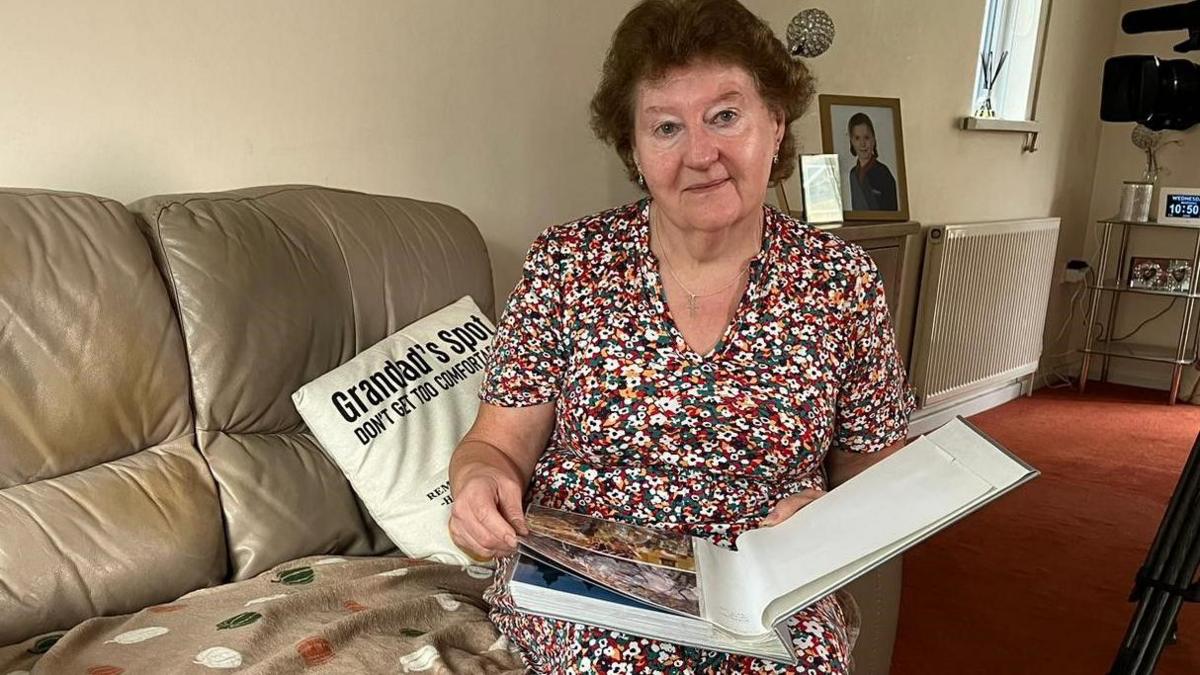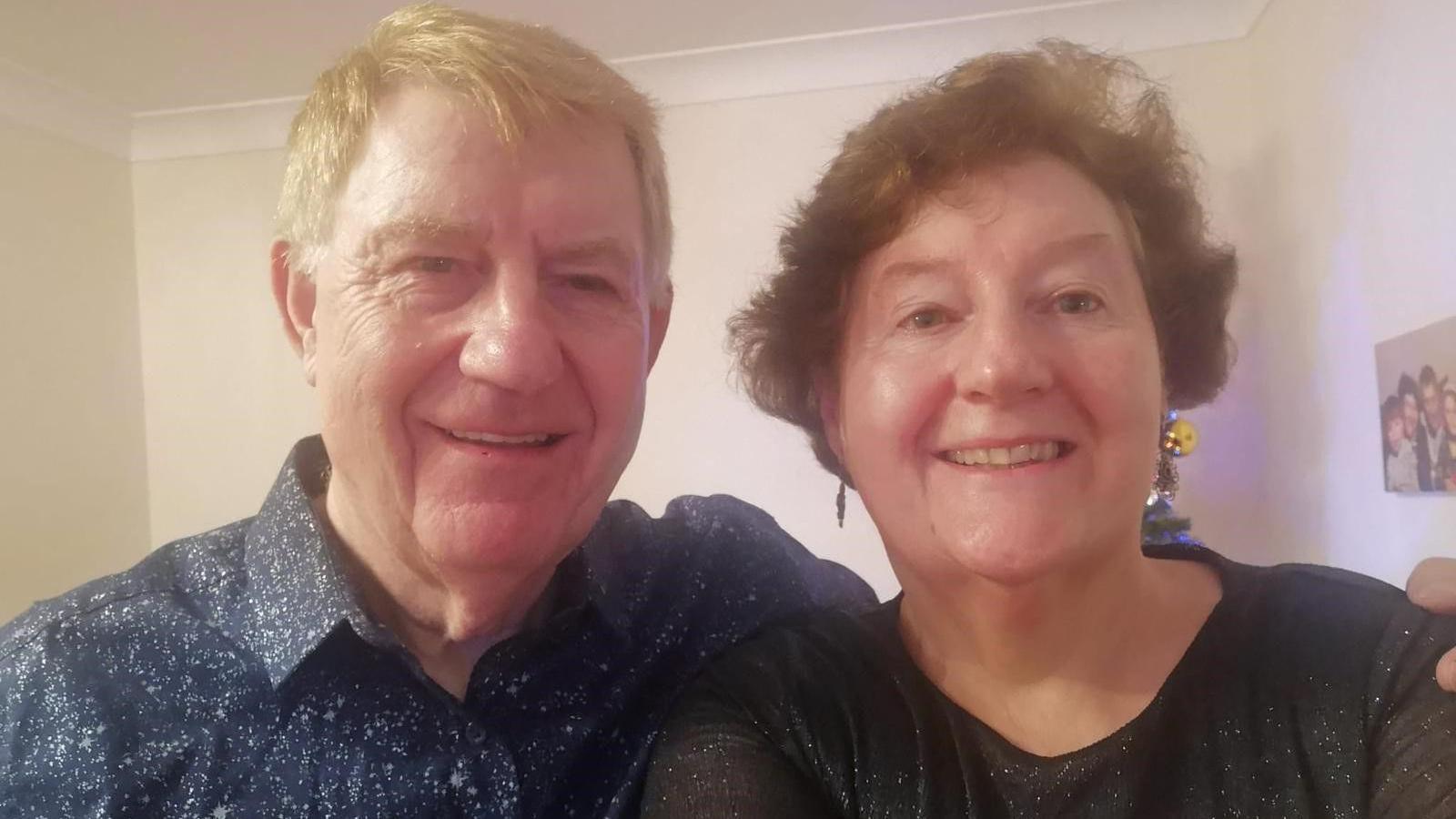Your Voice, Your Vote: 'Support our unpaid carers'

Karen Johnson from County Durham is caring for her husband Alan, who has Alzheimer's disease
- Published
In the run-up to the general election, the BBC is looking at the issues that matter the most to you, as part of Your Voice, Your Vote.
More than 200 people have already got in touch across the North East and Cumbria.
Karen Johnson, 63, from Haswell, County Durham, lives with her husband Alan, 76, who was diagnosed with Alzheimer's disease three years ago.
"We are now at the point where he is totally dependant on myself," she said.
She wants to know what support the future government could offer unpaid carers who are looking after loved ones at home.

Karen Johnson has called on the next government to support "the vast army of carers"
The couple, who met later in life, have four children between them and four grandchildren.
It was Mrs Johnson's mum who arranged their first date, as she tried to help her daughter recover from illness.
"He used to cycle past my mam every day, so she stopped this random stranger and said, 'would you like to take my daughter out for a bike ride?' - and the rest is history."
They had enjoyed an active life and were saving for their retirement "to tour around the world".
However, following Mr Johnson's diagnosis in the summer of 2021, their lives changed.
"I have lost my soul mate, I have lost the person who used to support me - it's a very, very sad place to be and it's very lonely - even though I live with him, it's like living with a ghost really," she told BBC Look North.
"There are times I am pretty sure he doesn't recognise that I am his wife."

If you’ve got an issue you would like us to explore, contact Your Voice, Your Vote
The money they put aside for retirement is now being used to support Mrs Johnson as she provides round-the-clock care for her husband.
"That enables me to keep him at home for as long as possible," the former teacher said.
She believes there is a "lack of support" from the state for families that are dealing with dementia and has called on the next government to help.

The Johnsons were looking forward to retirement and travelling before Alan became ill
"There are amazing charities out there and without their support I don't know where I would be," Mrs Johnson added.
A priority for her would be more facilities that welcome both her and her husband, so they can enjoy activities together.
"Unfortunately, certainly in this area, there are very few day centres, there are very few charities that can provide support to us, you find you are very limited.
"I would like to ask what support are you going to put in for the vast army of carers in this country, who struggle on day to day, giving their loved ones the best life they can give possibly give them - what support are you going to provide for us?"
How the parties plan to tackle the issue:
The Liberal Democrats want to introduce regular respite breaks for unpaid carers as well as introduce paid carers' leave. The party also wants to make caring a protected characteristic under the Equality Act 2010.
In their manifesto, the Conservatives say they have increased Carers' Allowance by almost £1,500 since 2010 and have given carers an entitlement of unpaid leave. They say they will support unpaid carers.
Labour says it would create a National Care Service, with a principle of "home first", which would mean supporting people to live independently for as long as possible. The party says it is committed to ensuring families have the support they need.
The Green Party says it has found new investment of £20bn, which it claims is enough to introduce free personal care. The party would also increase pay rates for professional carers.
Reform UK says it would begin a Royal Commission of Inquiry into the social care system to form a national plan between the government, local authorities and home carer support groups. Reform says more funding will be required when a plan is agreed.
What really matters to you in this general election? What is the one issue that will influence your vote? Click the button below to submit your idea, and it could be featured on the BBC.

Follow BBC North East on X (formerly Twitter), external, Facebook, external and Instagram, external. Send your story ideas to northeastandcumbria@bbc.co.uk.

